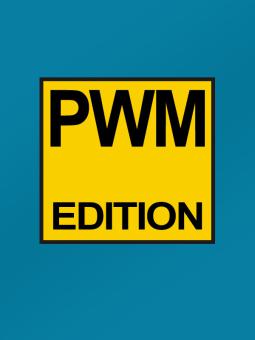Miechyslaw Karlowicz
Eternal Songs
Symphonic Poem, Op. 10
Miechyslaw Karlowicz
Eternal Songs
Symphonic Poem, Op. 10
- Compositor Miechyslaw Karlowicz
- Editorial PWM Edition
- Nº de pedido PWM11508
plazo de entrega 1-3 días laborables
IVA incluido.,
Más gastos de envío
No disponible en todos los países. Leer más
Descripción de la:
The orchestral triptych Eternal Songs [Odwieczne pie?ni], Op. 10 - the second symphonic poem in the Kar?owicz oeuvre after Returning Waves [Powracaj?ce fale] - was written from October 1904 to February 1906. That period was longer than originally intended: from Kar?owicz's correspondence with Adolf Chybi?ski, we learn that he had meant to finish the poem by the summer of 1905, but was hampered by his work at the Warsaw Music Society.
Thus Eternal Songs is the fullest manifestation of the composer's pantheistic credo, a musical expression of his philosophy, an apotheosis of Nature-Universe. The principal element defining the expression, character and form of Eternal Songs is the titular idea of song, and so lyrical utterance, with its characteristic primacy of songful melody.
The triptych Eternal Songs proved to be Kar?owicz's last work published during his lifetime. He published it himself, through the firm of Gebethner & Co. in Cracow, and it was printed by Josef Eberle of Vienna. On 14 January 1909, and so less than a month before his tragic death, Kar?owicz wrote from Zakopane to Gebethner & Co. about the price of the score and the parts fixed by the firm's central office in Warsaw and about the conditions for the work's performance.
Thus Eternal Songs is the fullest manifestation of the composer's pantheistic credo, a musical expression of his philosophy, an apotheosis of Nature-Universe. The principal element defining the expression, character and form of Eternal Songs is the titular idea of song, and so lyrical utterance, with its characteristic primacy of songful melody.
The triptych Eternal Songs proved to be Kar?owicz's last work published during his lifetime. He published it himself, through the firm of Gebethner & Co. in Cracow, and it was printed by Josef Eberle of Vienna. On 14 January 1909, and so less than a month before his tragic death, Kar?owicz wrote from Zakopane to Gebethner & Co. about the price of the score and the parts fixed by the firm's central office in Warsaw and about the conditions for the work's performance.

